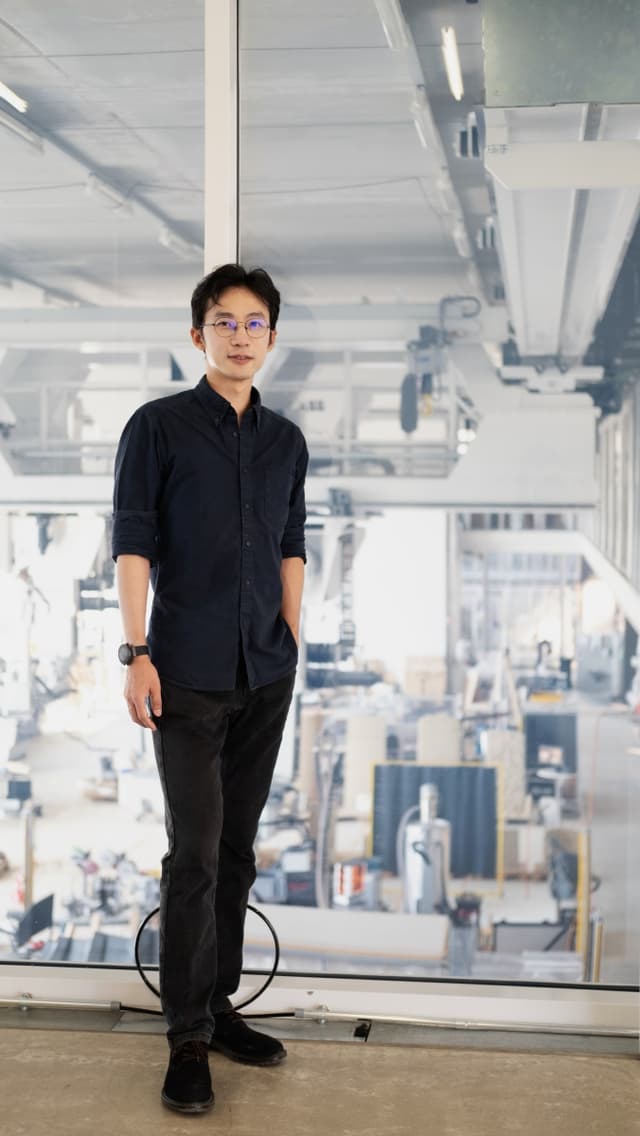
About Me
Zhao MA (马昭) is an established researcher at ETH Zurich, drawing upon his expansive multi-disciplinary background in design, engineering, and computer science. He is the lead instructor for the Digital Design Methods course and spearheads advanced computational research initiatives focused on computational design & optimization, geometry processing, robotic fabrication, and logics of living systems.
Outside of academia, he applies his expertise as a senior computational specialist at MESH, as well as providing consulting services for various industrial companies, where he tailors his skills to meet the demands of the industry. During 2020-2023, He has also collaborated as a remote consultant with OPTIndustries, an MIT MediaLab startup, overseeing their design optimization research for the product development team.
Rooted in his conviction is the idea that contemporary computational research can serve as the nexus between design, science, and engineering. Zhao ardently dedicates himself to cultivating interdisciplinary interactions and propelling the frontiers of computational research. His scholarly contributions have garnered commendations, with recognitions spanning awards and patents in fields as diverse as architecture, landscape design, and computational methodologies.
Interest
- Comp. Design & Optimization
- Geometry Processing
- Programmable Materials
- Advanced Visualization
Education
- Doctor of Science, 2021ETH Zurich
- Master of Architecture, 2017Massachusetts Institute of Technology
- Master of Engineering, 2017Massachusetts Institute of Technology
Contact
News
I'm excited to announce the open source release of GeoSharPlus, a high-performance C# / C++ interoperability library designed for cross-platform geometry data exchange. Originally developed for the Rhino/Grasshopper ecosystem, this library uses FlatBuffers to enable zero-copy serialization of geometric data between managed (.NET) and unmanaged (C++) environments, making it ideal for CAD plugin developers who need to leverage powerful C++ geometry libraries while maintaining cross-platform compatibility. The library already powers projects like IG-Mesh and BeingAliveLanguage, and includes comprehensive documentation, working examples, and an extensible architecture for adding new geometry types.
Zhao will present the latest research findings and methodological advancements of the BeingAliveLanguage project at the Digital Landscape Architecture Conference (DLA 2025). This presentation will highlight innovative approaches to integrating living systems with computational design in landscape architecture. The complete research paper and additional related works can be accessed in Issue 10-2025 of the Journal of Digital Landscape Architecture (JoDLA).
Capturing the complexity of landscape systems in a clear and compelling way can be a daunting task. In the latest issue of the "Netzwerk Stadt und Landschaft" newsletter "Digital Planning Tools", a newly published article delves into the innovative BeingAliveLanguage software. Developed to tackle this challenge, the article explores the system's objectives and the underlying concepts that drive its approach. To learn more about this groundbreaking tool, please visit the link provided below.
We're glad to introduce BeingAliveLanguage, a Grasshopper plugin developed by Dr. Zhao Ma of the Chair of Being Alive research group at ETH Zurich. This innovative tool specializes in the automated illustration of living systems, optimizing the design and visualization of soil separates along with its associated data in a systematic manner.
I am glad to release the open-source project IG-Mesh -- a grasshopper plugin for both low-level and advanced mesh processing. This plugin features various advanced algorithms written in C++, and is designed for the general architecture, design, and fabrication community -- aiming to resolve the long-lasting pain of interactive mesh processing on the Rhino & Grasshopper platform.
The doctorate thesis Computational Re-Forming has been published online in the ETH Zurich Research Collection.
In July 2021, Zhao received the 2021 DigitalFUTURES YOUNG Award (1 of 4) from the DigitalFUTURES, featuring his pioneering work on robotic sculpting.